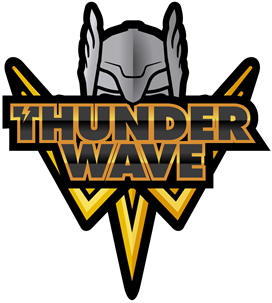The Chamber of Deputies approved in October 2022, the bill (PL 2,796/2021) which regulates the manufacture, import, sale and development of electronic games in the country. The project known as Games Legal Framework, according to deputy Darci Matos, aims at “the equalization of taxation will allow greater isonomy. Currently, the legislation considers electronic games as games of chance, like slot machines, which makes taxation extremely high”.
But what does this mean? In an interview with lawyers Vanessa Lerner and Rodrigo Maito, both partners of Dias Carneiro Lawyers, they clarified a little more about the Milestone, its importance, what it represents for companies and especially for the end consumer. Check it out below.

1. What is the legal framework for games?
PL 2796/2021, known as Games Legal Framework, is a legislative proposal with a strong tax base, which aims to encourage the development of the national electronic games industry, promoting the training of professionals capable of working in this market.
The Marco also addresses other issues related to the market, such as the classification of fantasy games (creating criteria to differentiate them from games of chance), also entering the world of eSports, with regulations on prizes and tournaments.
This project was approved by the Chamber of Deputies in October of this year and now goes to the Senate for a vote.
2. How important is it?
We have seen a huge increase in the number of bills that aim to regulate, in some way, the electronic gaming sector. We tend to have a critical view towards the majority, but the Games Legal Framework tries to address a problem that is in fact critical for our national gaming ecosystem: high taxation and lack of incentives for training professionals capable of working in this market. Brazil is already one of the important hubs for the international games industry (being the largest market in Latin America), now we need to ensure, on the one hand, that we remain attractive for foreign investment and on the other that our own industry continues to grow consistent and strong way.

According to a study prepared by ABRAGAMES, we jumped from 375 game development companies in Brazil in 2018 to 1009 in 2022. There is an internationalization of national companies such as Wild Life and even foreign investments in local companies (such as Epic Games in the Brazilian studio Aquiris ). This is just the beginning of what our market could be.
Then, the Games Legal Framework addresses important topics, but we have questions about its effective ability to achieve the objectives it seeks. It seems to us that one of the greatest merits of this PL is to make it clear that investment in the development of electronic games is considered an investment in research, development and innovation, and can benefit from the financial and tax incentives provided for in Laws no. 8,248/91 and n. 11,196/05. Furthermore, electronic and fantasy games are distinguished from slot machines and other games of chance.
3. What changes for consumers and companies?
Eventually, as it becomes clearer that investment in electronic game development can benefit from the aforementioned incentives, there may be a reduction in the price of these games to the end consumer, but this effect is still uncertain and depends on numerous factors.
4. Does this framework also exist in other countries?
Several countries have adopted different standards aimed at encouraging the games industry, which is a very common practice even in Latin America in countries like Chile and Colombia. Therefore, we can safely say that this is an international trend.
5. Games have been used for therapeutic purposes for some time now. But why include training for driving vehicles and simulating machine handling?
This is not very clear. The author of this bill, deputy Kim Kataguiri, maintains that “the authorization for the use of electronic games in schools – for exclusively pedagogical purposes –, in therapeutic treatments and in training significantly increases the scope of these games for uses beyond the mere entertainment". However, this use does not depend on legal authorization.
6. Does the framework help or hinder game manufacturers in Brazil on the issue of Copyright?
The legal protection of the intellectual property of electronic games is not the main objective of the Games Framework. However, the focus of this bill is to bring greater clarity regarding the taxation of games and consoles in Brazil and encourage the increase of professionals able to work in this sector. Therefore, it aims to help the national industry.
7. Legally, for the consumer: what positive and negative changes can this milestone bring, for example when purchasing games, consoles and especially when subscribing to plans such as PS Plus, Xbox Game Pass and Nintendo Online, as users often end up having some kind of problem canceling their subscriptions, among others
As stated above, it is a predominantly tax rule and the tax benefits obtained by companies that develop these games will not necessarily be passed on to prices, given the complexity and many variables involved in their use.
A company that is in its infancy may not yet have profits to the point of benefiting from incentive deduction rules for research and development expenditure. Therefore, it is not possible to say that the Legal Framework will produce effects in terms of price reduction.
8. And for national developers: what a defense this milestone can bring to companies that create games, but that continue to place their titles on platforms that are in other countries.
The focus is to increasingly promote the Brazilian games market, including the creation of new game distribution platforms. We already see companies like Magalu Games investing in the development of game distribution platforms, perhaps in the near future we will see the growth of this market in Brazil.
9. What final considerations can you make regarding this Legal Framework?
The current wording of the article gives us great concern. 2nd § 2nd of the Legal Framework which provides that it is “free to promote disputes involving users of electronic games”. This appears to provide legal permission for anyone to hold an eSports tournament without the need for authorization from the game owner for its commercial exploitation. Above all, games are protected intellectual property in Brazil, and it is unacceptable to think of any inherent limitation to this right. Perhaps this was not the intention of this clause, but it is important to correct this wording to prevent this understanding from being possible.
As previously stated, we have seen a very large increase in the number of bills that aim to regulate, in different ways, electronic games and eSports in Brazil. O Games Legal Framework, to some extent, aims to address real issues facing the sector. Our biggest concern are regulations, such as PL 383/2017 and even the General Sports Law (which was amended to include eSports in the context of Brazilian sports legislation) without assessing the real impact that such regulations can have on a sector that is proving to be one of the areas of great growth in Brazil. Any regulation of this market must be based on a careful assessment of its particularities (of which there are many), avoiding the creation of a discrediting regulatory environment with legal uncertainty.















































